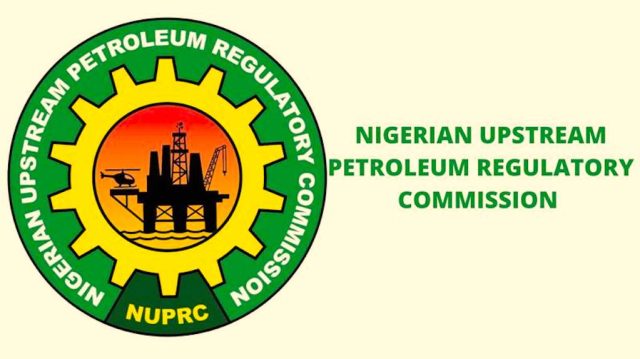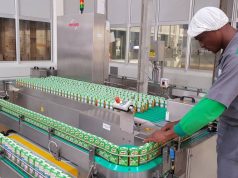The Nigerian Upstream Petroleum Regulatory Commission (NUPRC) on Thursday emphasised the need for bold and transformational thinking to build a resilient oil and gas sector in Nigeria.
Speaking at the Petroleum and Natural Gas Senior Staff Association of Nigeria (PENGASSAN) Energy and Labour Summit (PEALS) 2025 in Abuja on Thursday, the NUPRC Chief Executive, Gbenga Komolafe, noted that the industry must strike a balance between sustaining current energy security and preparing for the low-carbon economy of tomorrow.
“We stand today at a defining moment in both our national and global energy story: a time when the forces of transition, technology, and geopolitics are redefining the future of oil and gas. Indeed, energy transition is gathering pace around the world,” Mr Komolafe said.
He explained that global investment in low-carbon energy not only exceeded $1.7 trillion in 2023, surpassing fossil fuel investment for the first time in history but also surged by an additional 24 per cent in 2024, reaching an unprecedented $2.1 trillion.
“Yet, if history and experience are any guide, the nations that will lead this transition are those that strike the right balance between sustaining current energy security and preparing for the low-carbon economy of tomorrow,” he added.
He said while hydrocarbons are still expected to account for more than half of the world’s primary energy needs by mid-century, the International Energy Agency projects that renewables will supply nearly 90 per cent of new global electricity generation by 2030.
“Both OPEC and the U.S. Energy Information Administration underscore that fossil fuels will remain indispensable in meeting the energy demands of expanding populations and fast-growing economies, particularly in Asia and Africa.”
For Nigeria, he said the implications are profound.
According to him, with proven reserves of 37.28 billion barrels of crude oil and 210.54 trillion cubic feet of natural gas, the upstream sector remains the backbone of the country economy, delivering about 90 per cent of export earnings and nearly 70 per cent of government revenue.
“But our ambition must go beyond being resource-rich; we must be resource-responsible, harnessing hydrocarbons with world-class efficiency and environmental stewardship, while strategically investing in cleaner alternatives.
“The urgency of this task is magnified by rising global scrutiny, climate vulnerability, supply chain disruptions, and local challenges such as underinvestment and infrastructure gaps. Building a resilient oil and gas sector in Nigeria therefore demands nothing less than bold, transformational thinking and unified action across government, industry, labour, and communities,” Mr Komolafe said.
He said NUPRC understand that resilience is not a slogan; it is the result of deliberate and consistent action.
“Guided by the transformative Petroleum Industry Act (PIA) 2021, we have established a modern legal, governance, and fiscal framework that addresses long-standing investor concerns.
“We have complemented this with decisive Presidential Executive Orders that have slashed average contracting cycles from 36 months to just 6 months, enhanced local content value creation, unlocked globally competitive fiscal terms for deepwater, frontier basin, and gas projects, and created opportunities in previously underdeveloped investment frontiers,” he said.
On sustainability, he said the, NUPRC is taking decisive steps to future-proof the industry.
“Our upstream decarbonisation framework and gas-centric transition strategy aim to eliminate routine flaring by 2030, cut methane emissions by 60 per cent by 2031, and monetise our vast gas resources.
“Through initiatives like the Decade of Gas, the Nigerian Gas Flare Commercialisation Programme (NGFCP), and the Presidential CNG Initiative, we are creating thousands of green jobs and positioning Nigeria as Africa’s gas powerhouse.
“However, it must be emphasised that policy and capital alone do not create value; people do,” he added.
Mr Komolafe assured that the NUPRC is fully committed to working with PENGASSAN, operators, service providers, and investors to ensure that Nigeria does not merely participate in this transition era but actively shapes it to our advantage.
READ ALSO: NUPRC issues new guidelines for crude oil exports
“Let us remember, resilience is not built by chance, but by choice. Today, we must choose to invest in our people, drive innovation, safeguard the environment, and forge partnerships that will endure beyond market cycles and political terms,” he said.
Also speaking, Jagie Baxi, Managing Director of ExxonMobil, identified four critical factors for boosting Nigeria’s oil production such as geology, cost, risk, and reward.
He warned that in spite of Nigeria’s vast hydrocarbon resources, natural production decline, especially in deepwater operations, remained a challenge, with operators losing about 15% per cent output annually.
Mr Baxi noted that high drilling and operational costs in Nigeria deterred fresh investment.
He stressed the need for risk-adjusted incentives to retain investor interest and urged improved collaboration among stakeholders to resolve disputes and revive underperforming fields.
(NAN)









